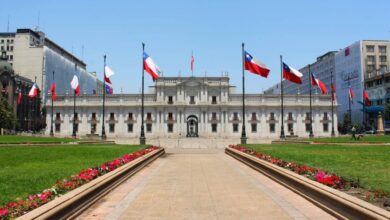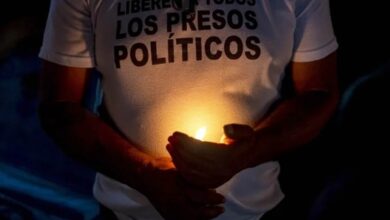January 27: Commemoration Day for the victims of the Holocaust
Listen this article
After 74 years, to free one of the largest concentration camps, how is anti-Semitism today in Europe?

January 27 marks the 74th anniversary of the liberation of the largest Nazi concentration camp. As every year, UNESCO pays tribute to the victims who suffered the atrocities of German soldiers who sympathized with the regime of the German leader Adolf Hitler.
Leer en español: 27 de enero: Día de Conmemoración a las víctimas del Holocausto
This is the Auschwitz-Birkenau concentration camp, where more than 1 million Jews were killed. In addition, this extermination center was also a work camp for Jews. Inside the facilities you could find torture rooms, crematoria, and gas chambers, all to put "final solution to the Jewish problem", as Heinrich Himmler referred to the problem. Himmler was one of the main leaders of the Nazi Party and who was responsible for the Holocaust, as National Geographic remembers.
On November 1, 2005, a resolution was approved by the General Assembly, where the UN reaffirms the Universal Declaration of Human Rights, which highlights the right to life, freedom of thought, conscience and religion, among others.
In the same way, it centers its position of rejection against the Holocaust and affirms that "it urges the States to carry out educational programs that inculcate in the new generations the teaching of the Holocaust, in order to help prevent acts of genocide in the future; Rejects the denial of the Holocaust; It condemns without reservation all the manifestations of religious intolerance, incitement, harassment or violence against people or communities based on the origin, among others".
You may be interested in reading: Which are the worst countries in human rights?
"Remembrance of the Holocaust: Demand and defend your human rights"
The motto for the commemoration of this year is the "remembrance of the Holocaust: Demand and defend your human rights", so as to encourage "the youth to learn from the lessons" that the tragedy left , "act against discrimination and defend democratic values in their communities at a time when the spread of neo-Nazism and hate groups fueled the growing anti-Semitism and other forms of "discrimination around the world, according to the web portal.
On the other hand, one of the objectives of the annual commemoration of the events is "to ratify its commitment to fight against anti-Semitism, racism, and any other form of intolerance that may go against certain human groups."
However, and with respect to the above, the president of the Jewish Agency Isaac Herzog, made a call on the need to continue against the anti-Semitic struggle that Europe returns to live:
"I would like to say loud and clear: anti-Semitism in Europe is once again a furious crisis, and should be stopped (…) as far as anti-Semitism is concerned, we are facing one of the darkest periods in Jewish history in Europe in recent times, "he said at the event that was held to commemorate the International Day of Holocaust Remembrance.
Are they really a problem?
According to the result of a Eurobarometer (series of surveys carried out by the European Commission), "half of the citizens of the European Union consider hatred of Jews a problem in their country." Thus, of 27,000 people surveyed, around 36% believe that anti-Semitism grew in their country.
In the same way, the survey highlights that the main problems for Europeans are "the negotiation of the Holocaust, anti-Semitism on the Internet, graffiti and vandalism against their community, and threats against Jews in the public space". As a measure to counter the proliferation of these types of threats, the European Commissioner for Justice, Vera Jourova, announced that a working group will be created to guarantee the application of a Declaration on anti-Semitism.
LatinAmerican Post | Laura Viviana Guevara Muñoz
Copy edited by Juliana Suárez





